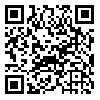Sat, Jul 5, 2025
| فارسی
Volume 16, Issue 1 (Spring 2014)
Advances in Cognitive Sciences 2014, 16(1): 21-28 |
Back to browse issues page
Download citation:
BibTeX | RIS | EndNote | Medlars | ProCite | Reference Manager | RefWorks
Send citation to:



BibTeX | RIS | EndNote | Medlars | ProCite | Reference Manager | RefWorks
Send citation to:
Shekofteh S, Rafienia P, Sabahi P. The Comparison of Theory of Mind and Facial Emotion Recognition in Psychotic, Neurotic and Normal Individuals. Advances in Cognitive Sciences 2014; 16 (1) :21-28
URL: http://icssjournal.ir/article-1-220-en.html
URL: http://icssjournal.ir/article-1-220-en.html
1- MA, Clinical Psychology, Semnan University, Semnan, Iran.
2- PhD, Psychology, Semnan University, Semnan, Iran.
2- PhD, Psychology, Semnan University, Semnan, Iran.
Abstract: (3175 Views)
Introduction: Social cognition refers to mental function in social interactions, self and other’s role in community context, which is relatively independent from other aspects of cognition. The aim of present study was to compare theory of mind and facial emotion recognition in psychotic, neurotic and normal individuals.
Method: 400 randomly selected female university students were selected and completed the Eysenck Personality Questionnaire-Revised (EPQ-R). Later, on the basis of inter criteria, three groups including psychotic, neurotic and normal (n=90) were identified. All participants were assigned to theory of mind (TOM) task, the Facial Emotion Recognition test and Short form of The Wechsler Intelligence Scale for Children-Revised (WISC-R). Data were analyzed using the ANCOVA and MANOVA.
Results: The results revealed no significant difference in theory of mind between the three groups; while neurotic and normal individuals had significant difference in fear facial emotion recognition.
Conclusion: Our results together with theoretical and practical basics may explain theory of mind and facial emotion recognition differences in psychotic, neurotic and normal subjects
Type of Study: Research |
Subject:
Special
Received: 2013/11/16 | Accepted: 2013/12/25 | Published: 2014/04/14
Received: 2013/11/16 | Accepted: 2013/12/25 | Published: 2014/04/14
Send email to the article author
| Rights and permissions | |
 |
This work is licensed under a Creative Commons Attribution-NonCommercial 4.0 International License. |



